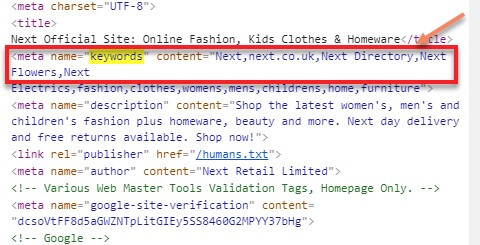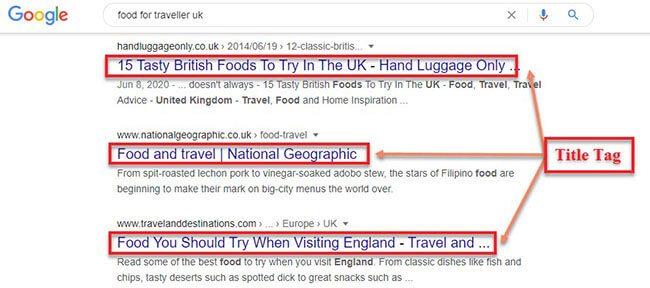Meta Tags: What Are They and Why Are They Important?
On-page SEO is a vital optimisation process that helps you improve not only your search rankings but also your site’s functionality. Optimising the various on-page elements of your website is a necessary ingredient to your online success, which is why it is something you should focus on early in your campaign.
However, of all the on-page elements of a website, the meta tags are the ones that are often neglected. Disregarding your meta tags is something you should avoid because these snippets of text can go a long way towards improving your search rankings.
Why Should You Care About Your Website’s Meta Tags?
Meta tags are small pieces of text that tell search engines, such as Google, what your web pages are all about. The “meta” in meta tags means “metadata,” which is the kind of information these tags provide about your site. Since they are only visible to search engines and the people viewing search result pages or SERPs, you won’t see the meta tags on your webpages unless you view their source code.
Although search engines don’t use meta tags solely as ranking factor, these texts snippets contribute to your site’s SEO. They affect how your website appears on Google. If your meta descriptions are well-written, users are more likely to click on your link and visit your site. This helps improve your click-through rate or CTR, which Google uses to rank your website.
4 Different Types of Meta Tags
Meta tags have four major categories: meta keywords attribute, title tag, meta description, and meta robots. Technically, there are more than four types of meta tags. However, some of them are irrelevant to digital marketing and do not contribute much to your site’s search engine optimisation.
1. Meta keywords attribute
As the name implies, the meta keywords attribute is a series of keywords that are relevant to the web page in question. Before, this particular meta tag was a potent SEO tool. Marketers who wanted to obtain more page views would resort to keyword stuffing and insert their webpages with irrelevant yet trending keywords to gain more web traffic. However, Google found that it was easy to abuse, and as a result, it devalued the meta keywords attribute. Today, with Google’s new search algorithms, you’ll need more than the meta keywords attribute to get good search rankings.
2. Title Tag
The title tag is the text found on top of your web browser. Search engines consider this text as the title of your webpage, which is why it helps to include relevant keywords in it. Title tags are considered the most important meta tag. They can be convenient, particularly if you want to differentiate one webpage from the other to improve your web visitors overall user experience.
3. Meta description attribute
The meta description is a very convenient meta tag because it provides users and search engines with a summary of a web page’s content. It is the tiny block of text that appears below a web page’s link and title on Google search result page.
Keep in mind that the meta description doesn’t always appear in search result pages. Sometimes, Google will select a snippet of text from your webpage and show it to the users who are searching for relevant information. However, meta descriptions can benefit you in other ways.
For instance, when you have a compelling meta description, you can easily convince searchers to click on the link to your site in the SERP. This is particularly true if your description contains the keywords a user utilised in their search query. With compelling meta descriptions, you are more likely to receive excellent CTRs. The higher your CTR is the bigger your chance of ranking well on Google.
To help you craft better meta descriptions, here are some quick pointers you should consider:
- Keep your meta descriptions below 160 characters.
- Tell your target audience what’s in it for them when they visit your page.
- Make your descriptions more inviting.
- Always include a call to action.
4. Meta robots attribute
Meta robots are another crucial meta tags because they tell search engine bots or crawlers what they should do with your webpages. Here’s how you can use them:
- Index/no index – this instructs search engines to show or not show a particular web page on SERPs.
- Follow/no follow – this tells search engines on how to deal with the links found on your webpages. It lets them know whether they should trust and “follow” the links to another page or not.
Meta Tags are Vital Part of Your Website
Meta tags are an integral part of any website. They tell search engines and users what your webpages are about. At the same time, they help convince your target audience to click on your link on SERPs and visit your site. Meta tags have four significant classifications. Knowing and understanding what each of them is for can help you create the best and most useful tags for your website.
At Springhill Marketing, our team of SEO experts can help you optimise every part of your website to make it more search engine friendly. Contact us today if you need help with creating SEO-friendly meta tags and more.
Drive Your Business Towards The Best Results.
Talk to us about how we can help.















